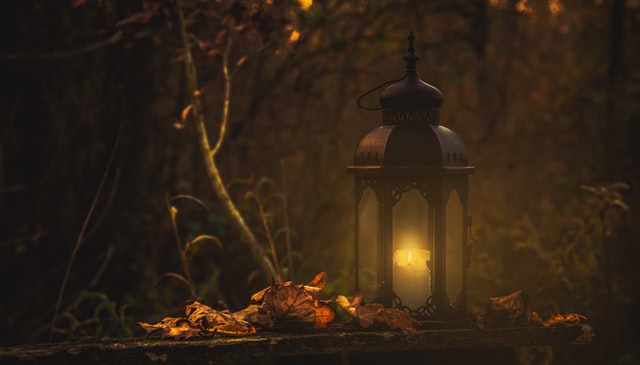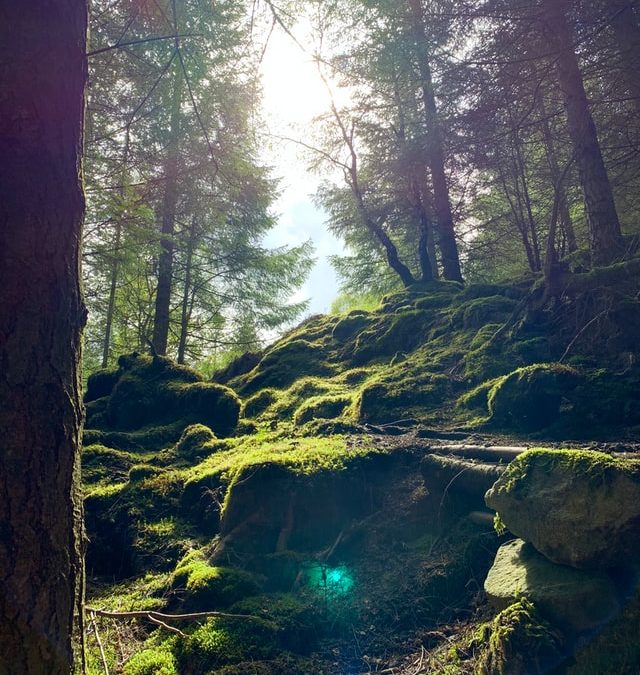I probably had the same reaction as anyone with knowledge of the Good Neighbors and a lick of sense when I learned about the #hexthefae thread on witchtok. I was originally going to write about why it is a bad idea, but then I tried to find the original post that started all of this. I found plenty of reaction (mostly negative), but no one standing up and claiming responsibility. If someone was trolling to get views, you would think they would be in the top ten search results.
Which made me wonder if this is a case of an older generation flipping out over a rumor that confirms their worst fears/ stereotypes of “kids today” that is really something that never existed or only happened once, and doesn’t stand up to logical scrutiny. Plenty of people with platforms have weighed in on why hexing an entire race of beings is not only a bad idea but bad magick, so I see no reason to continue to spill web ink over that point. But the larger question is: if there are people who think that is an OK thing to do that is a failure of those who work with the Good Neighbors to teach and educate properly. If this was all smoke it’s a failure of the greater pagan community to look past the first search result. Maybe kids today don’t have THAT much of a death/ nasty fate worse than death wish. Maybe it isn’t even kids.
To Teach, You Must Have Empathy

Hidden Brain had an episode talking about teaching. To be an effective teacher requires two things: knowledge of the subject matter, and the ability to empathize with someone who doesn’t know it to teach them effectively. The curse of expertise is once you have something down, it can be hard to go back and pull out all the steps because you have internalized them. It is easy to forget what it is like to be a student when you are the master, and I think that’s where a lot of communication breakdown occurs. Not only that, but this world of witchtok is so new its confusing to those not in it.
A simple truth I must acknowledge: the world is not the same place it was when I was a teenager. In both good and bad ways. A lot of ideas that were once radical and New Age are relatively accepted. Meditation and Yoga are mainstream, although usually in a form stripped of their metaphysical context. Witches are popular, Pagan gods are commonplace in pop culture (although how great of a representation they are is a topic for another post), and Neil Gaiman’s Norse Mythology was on the bestseller list. At the same time, there is a lot of crap, inaccurate ideas, and not every pagan is honest with good intentions.
Once you have connected with other pagans, and you know how to find out about pagan events in your area, what kinds of places you’ll find other pagans, and where the local witchy shop is, it can be hard to remember what it was like to try to find other pagans when you had no clue. My first Pagan pride, which was my first Pagan event, I got lost multiple times on the way there and was nerve wracked the entire time. Remembering my baby pagan days, my path from teen seeker to connecting with other pagans no longer exists. Witchvox is gone, the student group I was in no longer exists, and the witchy store I hung out at in college while still in the same city moved away from campus. Barnes and Noble’s metaphysical section has shrunk, and while the library system has more pagan books than I first thought (yay for ILL) how do you know which books are accurate and which are fluff? Pagan books have exploded, but if you are not already in the know will someone know where to find them?
The recent pagan ghostwriters scandal shows the face of American capitalism bent on extracting dollars from curious newbies but not caring about assisting their spiritual growth or supporting a community. Top social media and search results aren’t always a result of accurate and quality content, but who understands the algo rhythm. Someone with money can hire people who know how to manipulate search results, or a group that has the time and energy can manipulate them, and once again, how is a newbie going to know? In this age of information, people’s ability to tell the difference between good information and bad information has gone out the window, probably because so much of it is divorced from previous contexts.
I can’t help but be shocked that pagans are now considered to be a large enough group to market to by anyone other than the local community, but I guess from the witchy ads showing up in my social media feed it is business. 15-20 years ago the main complaint was that publishers were pumping out Wicca 101 books and little else. Now is a golden age of pagan publishing, but I think most material is aimed at advanced beginner or focused on a specific god or practice. The only good beginner book I can think of from the past ten years is John Beckett’s Path of Paganism, and that I would say is more geared at the beginning Polytheist than a beginning seeker.
I will also say there is a difference between finding the Pagan community and your pagan community. There is a reason different traditions are called paths, and not a highway. Everyone will make a wrong decision, or fail at some point. Better to analyze what you can learn from your mistakes or ask if this is really the path for you and move on.
I always planned on being an out pagan although I wouldn’t describe myself as any sort of leader. At this point I don’t identify as a witch. I decided to talk about pagan topics on my blog even though I write mainly fiction because I realized there was a good chance people who enjoyed my stories would be interested in paganism, and I want to at the very least point seekers in the right direction. Also, I think it helps seekers to know there are pagans out there. Some of my perspective has come from what would have helped me when I was seeking? But with the way the world changes, I think I also need to understand the world we are in now as well.

